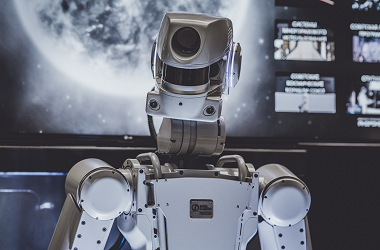
L. Petkevičius, associate professor at VU MIF, personal archive photo
When it comes to artificial intelligence (AI), some fear it, while others argue that it is essential to harness its potential. Will students' knowledge be replaced by written work created with AI software? It is no secret that many young people are not afraid of using AI. More specifically, using perhaps their most popular tool, the chatbot ChatGPT. How realistic are the fears for the future? Will writing research papers become meaningless?
ChatGPT - Friend or foe of education?
Since artificial intelligence has become available to the masses, its use in work or learning has rapidly gained popularity. However, this application of artificial intelligence could be better. It can give inaccurate answers and mislead. Therefore, the information you receive from ChatGPT must be verified and not completely trusted. It is not a secret that ChatGPT has become very popular among students because of its convenience, accessibility and speed.
It is well known that some students use ChatGPT not only to write regular term papers but even final papers, sometimes even letting the software do all the work for them. Not long ago, it became known in Russia that a student submitted a research paper written in ChatGPT as his own. The end of the story? The university authorities recognised the student's work and did not raise the authorship question. In other countries, the attitude is much stricter - Italy has decided to ban the use of this IoT application.
Will robots do our science for us?
Has the AI made writing scientific papers so easy that it will soon become meaningless? According to Linas Petkevičius, associate professor at Vilnius University's Faculty of Mathematics and Informatics, it's not that simple. As claimed by the researcher, while ChatGPT can produce realistic-looking generalised texts on social science topics and even provide mathematical and computer science formulae or algorithms, students who unthinkingly trust in the capabilities of AI could be sorely disappointed. "Especially those writing a paper on a new, under-researched topic. ChatGPT-generated texts are then purely statistical and most likely wrong," says Assoc. Prof. L. Petkevičius, "ChatGPT texts in areas not involved in the development of the model (e.g. new research) are too abstract and may contain several factual errors and inaccuracies, not to mention violations of academic ethics. Artificial intelligence is just one tool that can help. "ChatGPT, like Grammarly or other language checkers, can speed up essay writing if the context of the topic and the academic overview are already known, but it will not write an accurate and comprehensive paper for us".
Some students think they can easily trick the system and use ChatGPT to write their papers. Experts say that it is still a problem to tell if a paper has been written by an artificial intelligence. The good news is that there are more and more tools to distinguish between human and artificial intelligence. For example, if a text is long and often repeats the same words and abstract ideas, one might suspect that it was written by ChatGPT. Researcher L. Petkevičius says that educators already use a number of AI recognition tools in their work. Another way to check whether a text was written by ChatGPT is to ask the programme itself. Unfortunately, this method is not entirely reliable. The programme is very popular, receives many queries and may give a wrong answer.
The future of artificial intelligence in the world of education

„Unsplash“ photo by Arseny Togulev
The use of artificial intelligence in everyday life, in science and work processes is becoming increasingly important. The education system must find ways to integrate AI into the learning process and reap its benefits. L. Petkevičius, associate professor at VU MIF, explained that researchers at the Massachusetts Institute of Technology (MIT) have already developed an interactive version of a school application that uses chatbots and allows students to interact, ask questions and repeat tasks several times before learning them. In this way, people are gradually introduced to the use of the IoT at a young age and grow and develop with it. According to the expert, the success of this integration of AI into the learning process will significantly impact the education system's future direction.
Researcher L. Petkevčius believes that artificial intelligence applications will enable universities to learn increasingly complex concepts. It will take some time for students and researchers to figure out how this will speed up their work. Once the benefits are fully known, this will raise the level and quality of learning. Petkevičius does not doubt that we will integrate AI into almost every learning programme. "I believe that there will be chatbots in all courses at universities that will have access to student's records, and students will be able to ask the chatbots all general and course-related questions," says the lecturer. However, the changes in the delivery of learning materials will take time. The new technologies are ahead of the education system. "The knowledge taught at the university is changing, being updated and combined with all the technological innovations that promote new scientific discoveries," says L. Petkevičius.
